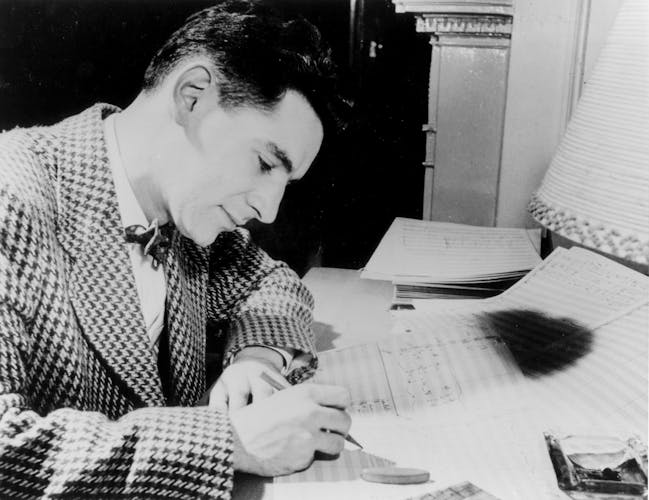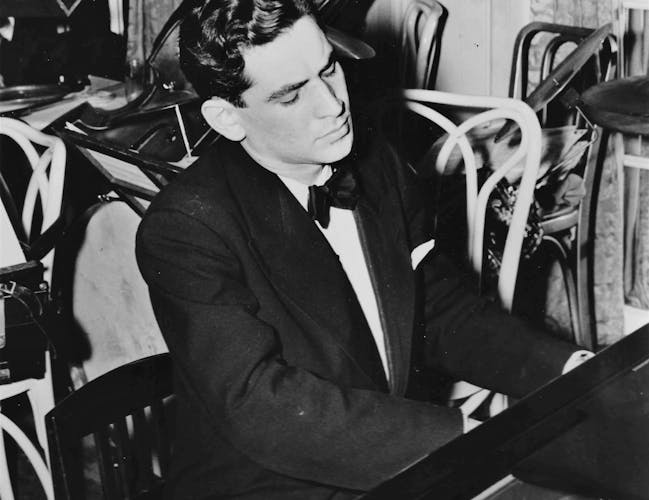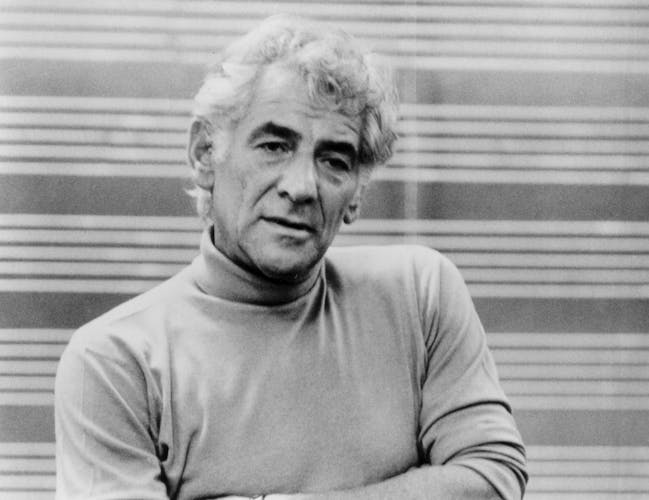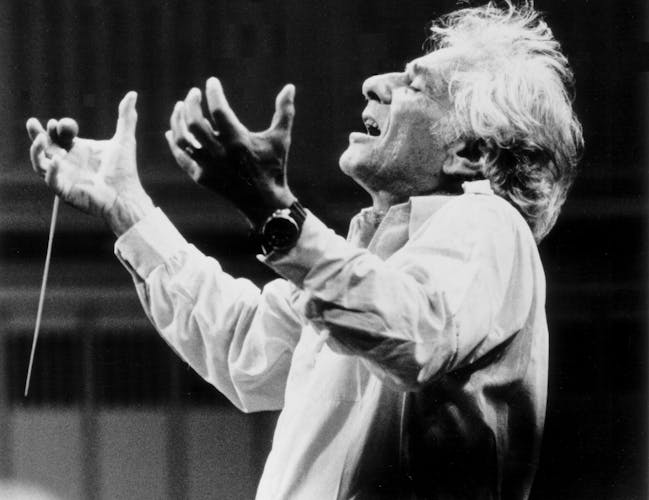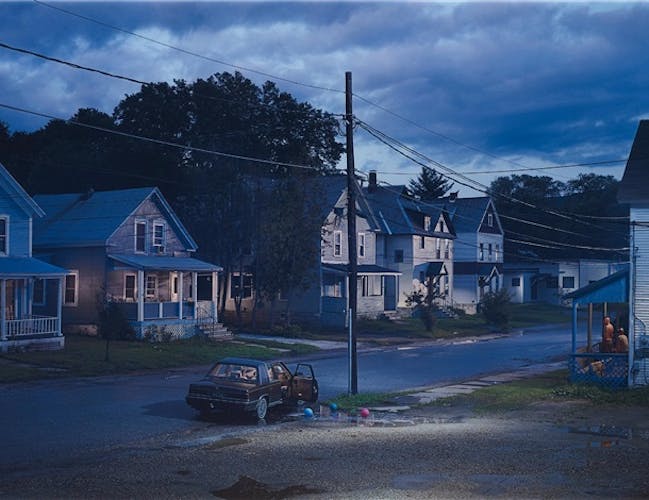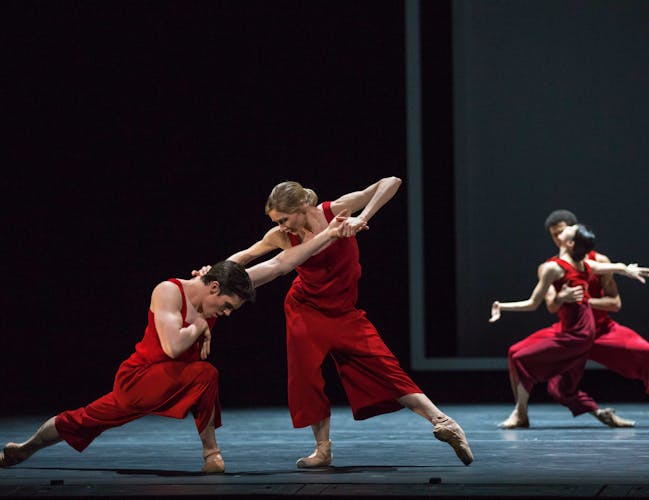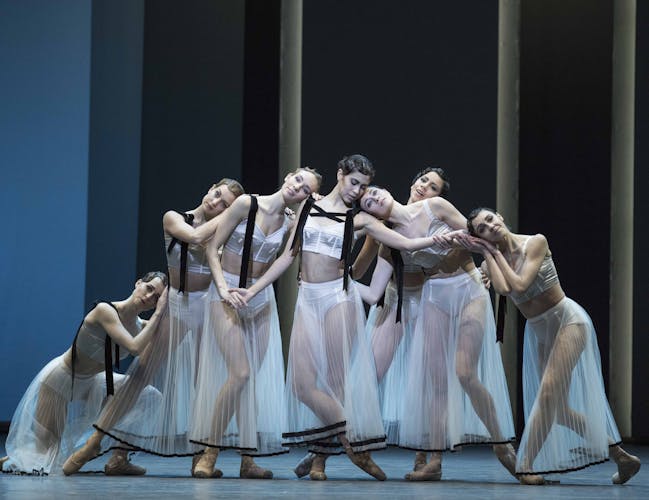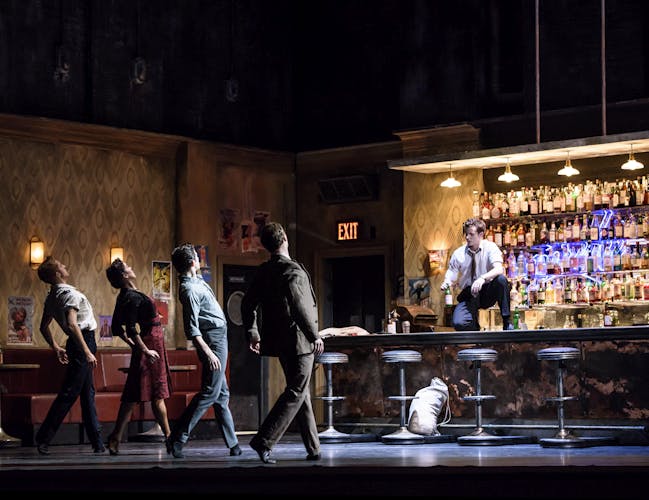Creative Spotlight: Leonard Bernstein
Read more about the life and work of composer Leonard Bernstein in this biography.
Leonard Bernstein (25 August 1918–14 October 1990) was a world-renowned American conductor and composer, and one of classical music's icons of the 20th century.
His life
Born in Lawrence, Massachusetts, Leonard Bernstein was the son of middle-class Jewish immigrants. As a child, he took piano lessons and began composing while attending the Garrison and Boston Latin Schools. His musical studies became more serious while studying at Harvard College, and in 1939, shortly before graduating, he made an informal conducting debut with his own incidental music for Aristophanes' The Birds, and directed and performed in Marc Blitzstein's The Cradle Will Rock. Later accepted into the Curtis Institute of Music in Philadelphia, he studied piano, conducting, and orchestration. In the summer of 1940, he began what would become a lifelong association with the Boston Symphony Orchestra's summer festival at Tanglewood in western Massachusetts. There he met the orchestra's conductor, Serge Koussevitzky, and became Koussevitzky's conducting assistant.
At only 25, Bernstein held his first conducting post as Assistant Conductor of the New York Philharmonic. It was in this capacity that, on November 14, 1943, he made his historic conducting debut. With only a few hours’ notice, he substituted for the ailing Bruno Walter at a Carnegie Hall concert. Overnight he became famous. The performance was broadcast nationwide on CBS radio and the next day made the front-page of The New York Times. This acclaim quickly led to invitations to conduct orchestras all over the world.
In 1958, Bernstein became Music Director of the New York Philharmonic, a position he held until 1969. He was the first American to conduct the Berlin Philharmonic, London Symphony Orchestra and the Royal Concertgebouw, among others, as well as the first American to conduct at La Scala in Milan. He conducted a vast repertoire, and left a legacy that continues to thrive through a catalogue of over 500 recordings and filmed performances. Bernstein's successes as a composer ranged from the Broadway stage (most notably, West Side Story) to concert halls worldwide. His books, as well as the much-beloved televised Young People's Concerts with the New York Philharmonic, also established Bernstein as a leading educator. His awards included eleven Emmy Awards, one Tony Award, the Lifetime Achievement Grammy Award and the Kennedy Center Honors.
© The Leonard Bernstein Office, Inc. Used and edited with permission.
Gallery
His work
Bernstein’s major concert works include three symphonies subtitled Jeremiah (1944), The Age of Anxiety (1949), and Kaddish (1963), as well as Prelude, Fugue and Riffs (1949); Serenade (after Plato’s Symposium) for violin, strings and percussion (1954); Symphonic Dances from West Side Story (1960); Chichester Psalms (1965); MASS: A Theatre Piece for Singers, Players and Dancers (1971); Songfest (1977); Divertimento for orchestra (1980); Halil for solo flute and small orchestra (1981); Touches (1981) and Thirteen Anniversaries (1988) for solo piano; Missa Brevis for singers and percussion (1988); Concerto for Orchestra: Jubilee Games (1989); and Arias and Barcarolles (1988).
Bernstein's works for the Broadway stage include On the Town, Wonderful Town, Candide and the immensely popular West Side Story. He also wrote the one-act opera Trouble in Tahiti (1952), and its sequel, the three-act opera A Quiet Place (1983). His ballet work includes collaborations with choreographer Jerome Robbins – with whom he’d also collaborated on West Side Story – on Fancy Free (1944), Facsimile (1946), and Dybbuk (1975). He composed the score for the award-winning movie On the Waterfront (1954) and incidental music for two Broadway plays: Peter Pan (1950) and The Lark (1955).
Bernstein's music has also been used for ballet. In 2018, The Royal Ballet performed in the Bernstein Celebration; a mixed programme of three works that used Bernstein's music. Age of Anxiety was choreographed by Liam Scarlett and had its premiere in 2014. Bernstein's music was based on the poem of the same name by W. H. Auden. His symphony was first performed in New York in April 1949 and closely follows the structure of the poem, in two parts, with three sections each. The work ends with a solemn and intense Epilogue that culminates in what Bernstein himself described as 'a positive statement of newly-recognized faith'. Jerome Robbins was quick to spot its balletic potential and choreographed Age of Anxiety for New York City Ballet in 1950 with a creative team who went on to work with Robbins and Bernstein on West Side Story in 1957. The Bernstein-Robbins Age of Anxiety ballet won a Dance magazine award in 1950 while the Symphony that inspired it has become firmly established in the concert hall.
Corybantic Games was choreographed by Artistic Associate of The Royal Ballet Christopher Wheeldon in 2018 to Bernstein's Serenade, after Plato: Symposium. This five-movement piece for violin and orchestra which evolved out of Plato's exploration of aspects of love. The work's tender and its more bombastic musical passages are made visual through Wheeldon’s dynamic contemporary choreography.
In 1963 Walter Hussey, the Dean of Chichester Cathedral commissioned Bernstein to write musical settings to a selection of psalms. He set six psalms in three movements, to be sung in Hebrew. A boy treble sings solo alongside the choir (in the original Hebrew) in an echo of the psalms’ origin as the ‘Songs of David’. Wayne McGregor, Resident Choreographer of The Royal Ballet, created Yugen for the Bernstein Centenary, setting the work to the Chichester Psalms in this co-production with Dutch National Ballet.
In popular culture
West Side Story: A new kind of musical theatre
West Side Story remains one of Bernstein's most iconic and enduring works, leaving a legacy in both theatre and film. The musical, which premiered on Broadway in 1957, was revolutionary for its blend of classical music, jazz, Latin rhythms, and sophisticated orchestration. Bernstein's score, combined with Stephen Sondheim’s sharp lyrics (West Side Story marked Sondheim’s Broadway debut), Jerome Robbins’ innovative choreography and Arthur Laurents’ powerful book, created a new kind of musical theatre that addressed serious social issues like racial tension, gang violence, and forbidden love in a modern, urban setting.
Loosely based on Shakespeare’s Romeo and Juliet, West Side Story transposed the tale of star-crossed lovers to the streets of New York, where Tony and Maria, members of rival gangs, find themselves caught in a tragic love story. The musical was a hugely commercial success, running for over 700 performances before transferring to the West End.
The legacy of West Side Story was further solidified by its 1961 film adaptation, which became a cinematic landmark. Directed by Robert Wise and Jerome Robbins, the film starred Natalie Wood (Maria), Richard Beymer (Tony), Rita Moreno (Anita), and George Chakiris (Bernardo) and was a massive success, winning 10 Academy Awards, including Best Picture. Bernstein’s music, especially songs like ‘Tonight,’ ‘Maria,’ ‘Somewhere,’ and ‘America,’ became iconic standards. In 2021, Steven Spielberg directed a new film adaptation of West Side Story, bringing the story to a new generation of viewers.
Maestro: Genius and vulnerability
Bernstein is the central figure in the 2023 film Maestro, directed by and starring Bradley Cooper, and produced by Martin Scorsese and Steven Spielberg. The film provides a dramatic exploration of Bernstein's life, focusing on both the composer’s musical career and his complex personal life, particularly his relationship with his wife Felicia Montealegre. While Bernstein is widely celebrated for his musical genius, Maestro explores his identity as a husband, father, and public figure who navigated a tumultuous private world.
An intimate portrayal of the composer’s dual life – his deep love for Felicia and their unconventional marriage, which endured despite Bernstein’s homosexuality, a fact he grappled with throughout his life – the film examines the couple’s emotional bond, from their early courtship in the 1940s, through Bernstein's years of success, to the strains placed on their marriage due to his personal struggles and professional pressures.
Gallery
Watch more
- Linbury Theatre
- Opera and Music
Trouble in Tahiti / A Quiet Place
Portraits of a family, 30 years apart, in two Leonard Bernstein operas.
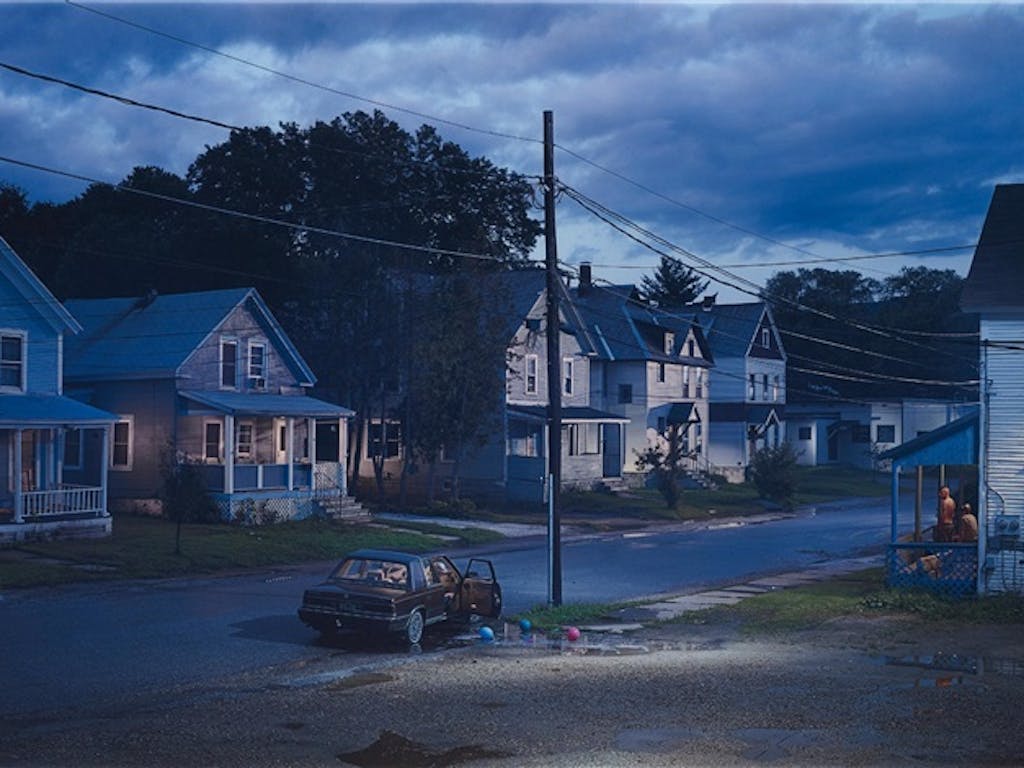
Royal Opera House Covent Garden Foundation, a charitable company limited by guarantee incorporated in England and Wales (Company number 480523) Charity Registered (Number 211775)

